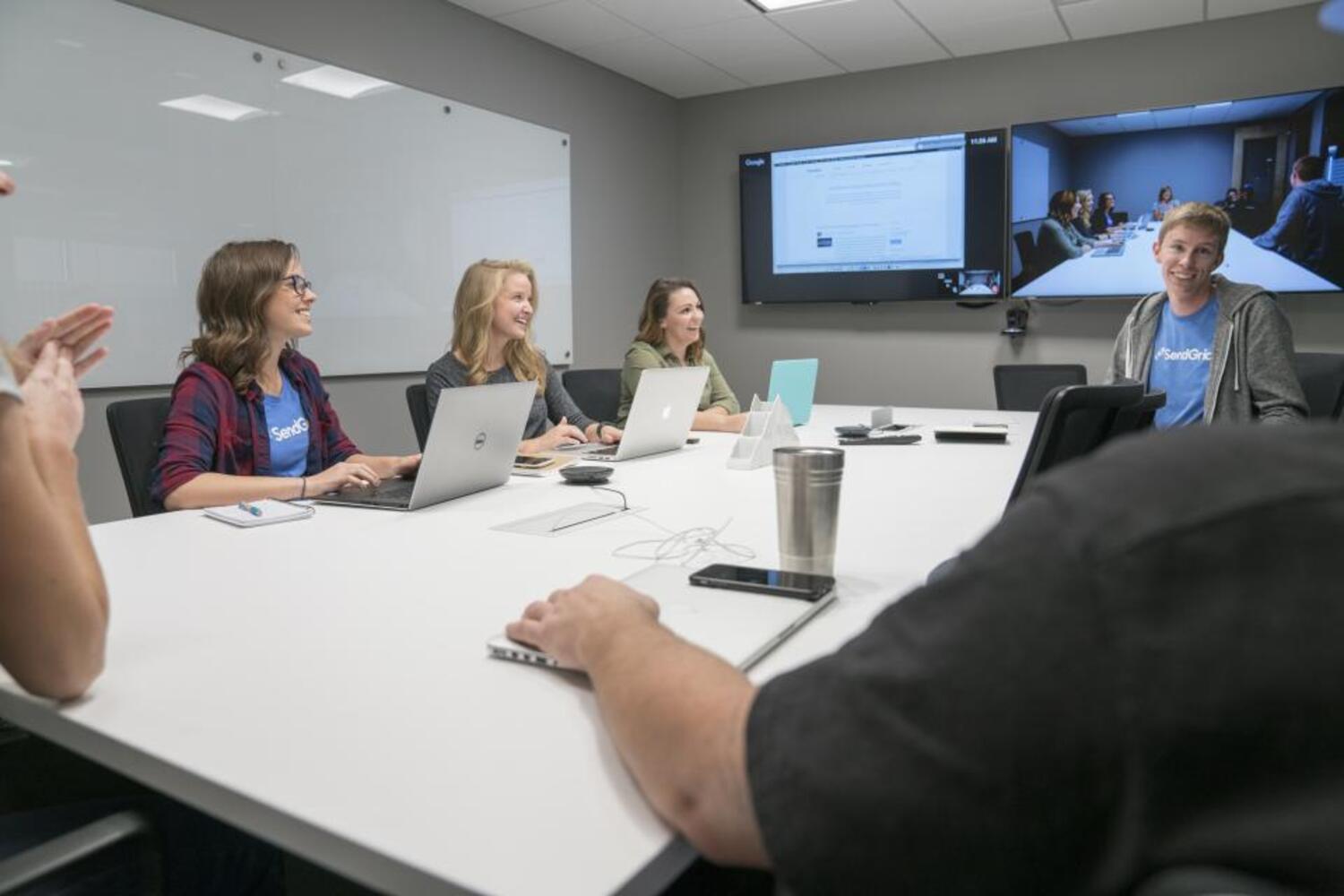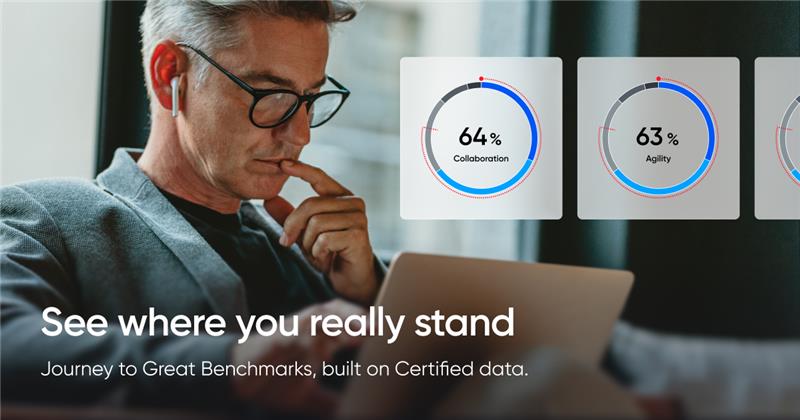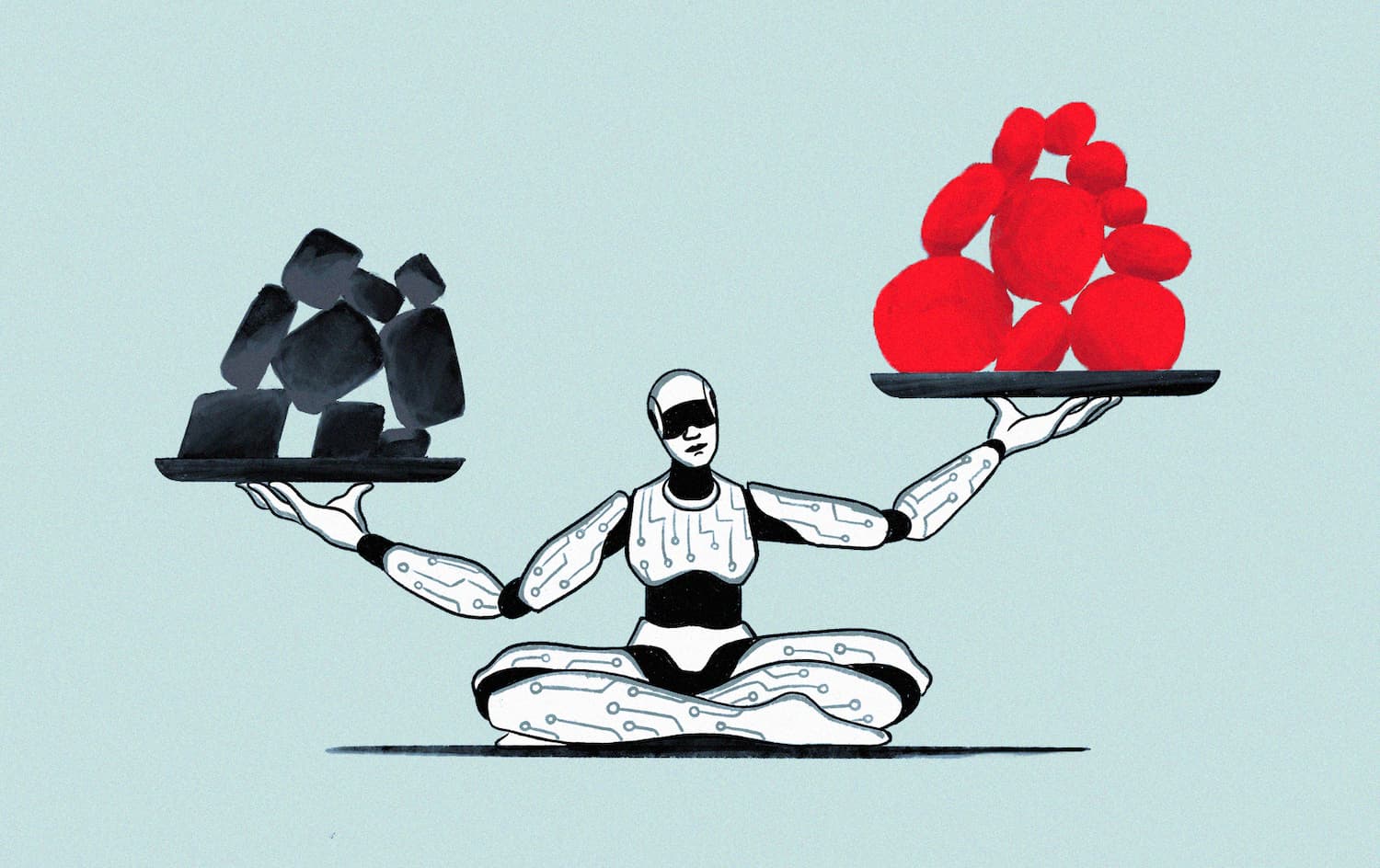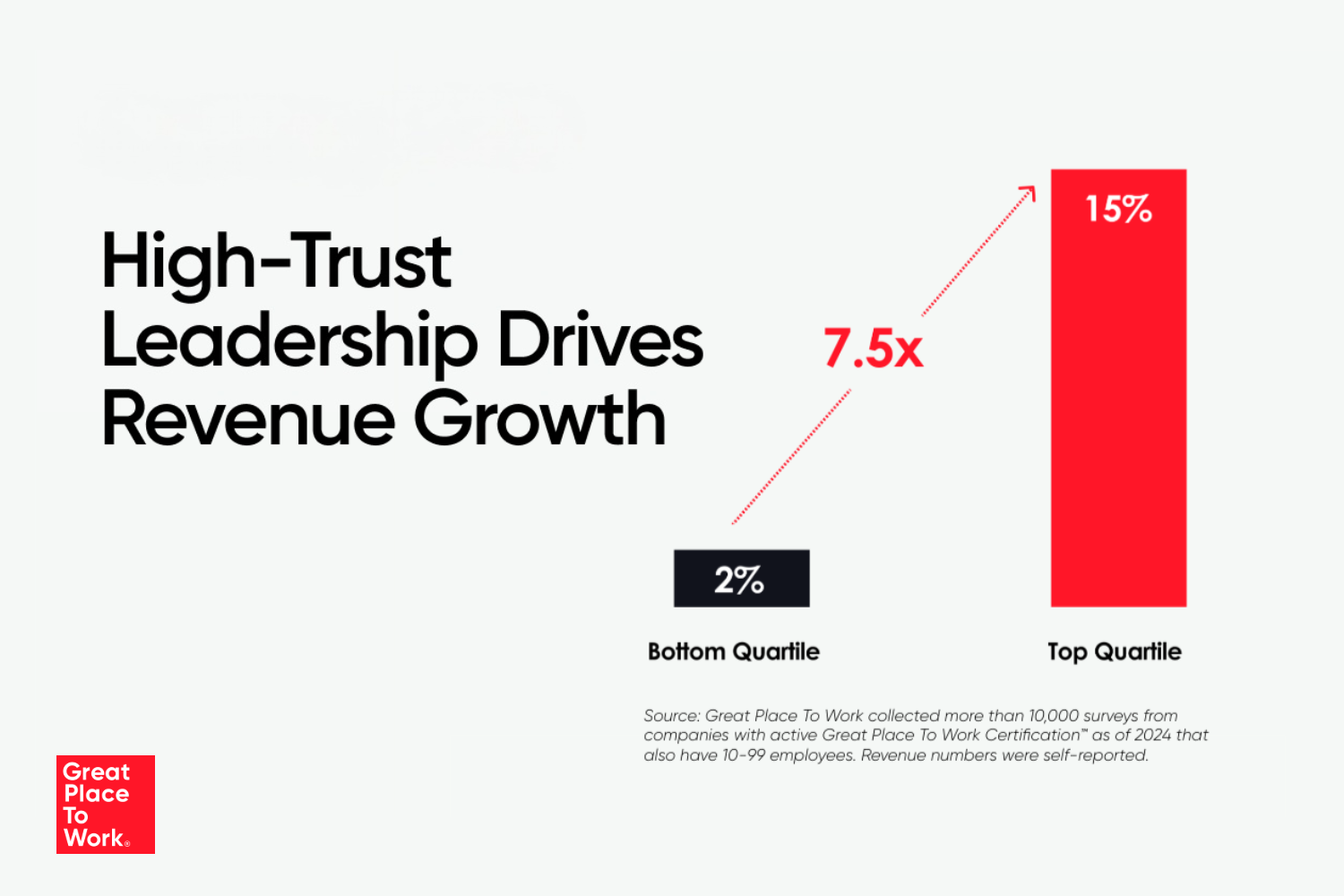
A Culture Conversation with Pattie Money, Chief People Officer at SendGrid
Maintaining a strong culture through rapid growth is no small feat – in fact few companies can do it well.
Yet Great Place To Work-Certified company SendGrid is doing just that.
Founded 8 years ago in 2009, SendGrid is still a relatively young tech company. A graduate of the TechStars program, the business provides cloud-based email software for developers and alike. The company currently sends over 1 billion emails per day on behalf of tens of thousands of active customers.
Yet beyond their successful service, SendGrid has an exceptional workplace culture. The company strives to stay true to its core values: the 4 H’s of Happy, Honest, Humble, and Hungry. The company also truly invests in employee development, and has shown strong commitment to diversity and inclusion initiatives. For the last 3 years, SendGrid has joined the movement of companies choosing to publicly release their diversity numbers, with the intent of driving change within their organization and throughout the wider tech industry.
SendGrid’s Chief People Officer, Pattie Money, joined us for a quick chat on what makes their culture so unique, and what programs and practices they’ve put in place to maintain a great place to work through a time of intense growth.
You can listen to our conversation by playing the audio clip below. To read the full transcript, scroll down.
A few of our favorite quotes from Pattie:
“One of the most unique things about us is that combination of both the ‘Hungry’ and the ‘Humble’. There's a lot of folks out there that are hungry, hungry, hungry, but they don't bring that humble ‘H’ to the table. That combination of smart, driven people that are also incredibly humble that say, ‘You know, I don't have all the answers. I need to listen. I need to hear what other people have to say.’
“I loved how [SendGrid’s CEO, Sameer Dholakia, talked about the company. You talk with a lot of leaders and you hear them talk about your business and your financials and your platforms… and things like that. He really talked about how he loved the company and loved the people.”
“I think about how do we help people continue to grow because smart, talented people--they do not want to stop growing. They want to be challenged every day.”
“I can say without a doubt this is the strongest culture I've been a part of. I think part of that is truly spending time on engagement results and taking action on those results, because when you do that people know you care.”
“We believe in diversity as a differentiator in our business. [It] makes us stronger, makes us wiser, gives us different lenses to view the world through. And diversity isn't just about gender or ethnicity, it's about diversity of different thought coming from businesses, different regions of the country, different regions of the world.”
“Tech is filled with smart, creative, innovative, interesting folks. Many times we try to put people in their box, [but it’s better to] set them free. Enable people to solve whatever problem they see that's coming down ... if they see something, you say, ‘If you see this you own it. If it's not within your wheelhouse to solve, bring it to someone that can solve it.’
Transcript
Great Place To Work: Why don't we just start and I would love to just hear you talk a little bit about SendGrid and your role at SendGrid.
PM: Great. I don't know how much you know about our business, but it's an amazing business. It's one of those that you don't think a whole lot about. A lot of times we don't think about email. We just assume that everything happens easily and seamlessly, but it doesn't. There's a lot of infrastructure and work that goes on behind it so we're a cloud based customer communication platform is a great way to think about us and our job and what we try to do is really drive engagement. Engagement just like in how we communicate with each other, making certain that those connections are made so that communication can actually occur. When you think about email as a way to reach your customers, it is the most cost effective way to do that. We don't always think about that. We think about the big flashy things like TV advertising and things like that. Email is just so effective and it really does get you a great ROI so we're driving all the technology that makes that happen so it's a very exciting business. One of those kind of secret things that people don't think about that much, but it's really core to how you do the work every day.
I knew nothing about email. I didn't even know that there was something happening behind the scenes although I think I should of known that, but I didn't. I was lucky enough to know a person who had been on my staff before at my previous employer whose husband worked at SendGrid who reached out to me and said, "SendGrid is looking for a Chief People Officer and they want a profile like yours. Do you know someone like you?" I was like, "Well, I kind of know me so tell me more about it" and I truly respected this woman. She's just ... she's amazingly talented. Her husband's amazingly talented and she just said, "You all should at least have a conversation."
Wasn't actively looking for a job at that point in time, but I had my first conversation with Sameer who is our CEO and I got to you I was hooked. I truly just said, "Oh my gosh, I think I want to work for this company" and it was surprising and it was interesting and I loved how he talked about the company. You talk with a lot of leaders and you hear them talk about your business and your financials and your platforms and all the cool, exciting things that you are doing and your financing and things like that and he really talked about how he loved the company and loved the people. You just don't hear people talk about loving people in an interview and I truly found that very connecting. I thought this is a person that I want to work with and for and so that was what hooked me.
My job is Chief People Officer and that means I kind of look at everything surrounding our people's strategy, how do we connect our business strategy to our people strategy, make certain that we're driving the right things to give us business results and for me it's all about making certain that people are engaged. If we want our business strategy to be executed well, you need some happy, engaged Gridders as we call them here.
PM: That's everything from our hiring process through the entire employment lifecycle. Thinking about people at every phase of their career. How do you keep them growing and happy and learning. For me I think about how do we help people continue to grow because smart, talented people, they do not want to stop growing. They want to be challenged every day. We have a thing that we call let's raise our hoodie bar and so the idea is that we're going to get better and better in our own jobs everyday so from a people ops perspective, our job is to ensure that we create the programs and help execute on those things as seamlessly as possible without disrupting people's work and making it easy for them to be able to do that and do it well.
That's what keeps me going every day. That's what gets me up in the morning and keeps me here late at night.
GPTW: That's great. PM, have you been working at SendGrid long?
PM: I'm a newbie. I've been here four and a half months. I'm really new.
GPTW: Awesome and it sounds like it's been a really exciting opportunity so far?
PM: It's been a joy.
GPTW: That's great. I guess let's jump in and I'd love to just hear more about SendGrid's culture and what makes it unique and what have you noticed so far, especially as someone who just came on board maybe four months ago?
PM: Okay. Good. I think first of all you know about our four H's. They really are core to everything that we do and they are foundational. They've been around for quite a while. They were part of our original leaderships mindset in terms of how you build a company so it's hungry, humble, honest and-
GPTW: Happy.
PM: Happy. Thank you. That's my favorite one. Those are really part of everything that we do. We hire for that. We make business decisions surrounding that. We have conversations that actually start with, honest H, we need to have a conversation about something so it informs how we communicate and work together. It's integrated into all the decisions that we make as well. When we look at hiring somebody, there's a lot of really talented people out there, really good folks, but they don't always meet that criteria of all four of those H's and it doesn't mean that you clone people because people show up differently.
For example, I'm a pretty infusive gal so I'm smiley, I'm happy, I'm naturally I think I meet the happy H, but there are people that are quiet and introspective, but they love what they do and it shows. It shows in how they do their work and how they interact with other people so it's not like it's one size fits all, but it is true that everybody needs to meet those four H's and embrace those as a way of doing business. I think that makes us very unique. I also think that a lot of companies talk about it, but it's so hard to actually do and keep alive ... especially as you grow. When you're on a really fast growth mode, I mean we're going to hire probably close to 200 people this year and for a company that's currently at 365 people, that is a lot of people to absorb into your organization and making sure that you're hiring for the right things, that you don't sacrifice because you need speed to hire, that you make certain that people come on board really do want to work that way and that it feels not only like okay, I can work that way. It's how they want to work. I think that's how we will keep our culture strong and alive as we continue to grow.
GPTW: Great. Wow. You guys are growing very fast. It sounds like a very ambitious plan for this year.
PM: A little bit.
GPTW: Yeah. Which is great to hear. Considering that, how ... are there any sorts of practices or things that you're really going to focus on this year to make sure that you maintain that culture through that period of growth?
PM: There's a number of things. I think the first area of real focus for us for 2017 is ... well, I would give us three major focus areas. Okay? One is really working on career development frameworks for folks because as you grow quickly you want to make certain that you're not just looking at your external talent that you are having to add, but you also want to make sure that you're looking at your internal talent, making certain that they are able to grow and develop as the company grows and develop so really creating good career paths for folks making certain that we are helping them learn how to realize their goals.
Everybody comes into the company with hopes, dreams and aspirations and helping them live into those expectations I think is really important as you grow. There's a lot of attention that's paid to the bright and shiny new people, but you want to make sure that you are paying attention to all of the talent that's internal to your organization that has gotten you where you are so far and is going to be part of that journey going forward because if you don't, you can lose those people as you are going forward. I think career development is huge for us.
Secondly is management development. Really looking at how do we help our managers be the type of people that folks want to work for and not that they're easy and super fun all the time or anything like that, but that they're people that challenge you, that demand your best, that make you want to come to work, that you know there's someone you can respect and you can learn from so helping our managers continue to grow. When you are growing fast you have some managers, it's their first time managing. You've got others that are much more senior, but all of us as managers need to keep in mind that this is our job and we're there to help our teams be successful and so making certain that we have programs that keep that top of mind, continue to develop our managers, make certain that they are not losing site of what's most important, especially when we're growing fast is number two.
Number three is really paying attention to our engagement results. We take that very seriously. We do engagement surveys twice a year. What is incredibly unique about SendGrid is that we follow up deeply on the engagement results. We ran our last engagement survey in November, reported out to the organization in December, month of January every team had a meeting on their results with action planning surrounding what are we going to do because it's not just senior management that's going to drive engagement. It's all of us and how we work together and how we interact with each other, how we do our work and there's a lot of things that are within our control so we want teams to create their own action plans, feel a sense of ownership and driving engagement and then we're here to help shepherd that through. The bigger initiatives that we need to ... that have been identified through our engagement results, we take on at a larger level with people operations.
GPTW: Great. Could you give me any specific examples of the sorts of action plans or practices that you're putting in place to improve engagement among employees?
PM: You know it's funny. The career development plan is one of them. Okay, that actually came from last year and it's continued to be an area that we as we grow need to evolve. We've put in place last year at the end of the year, career development framework. We rolled out career development plans for everyone. Those are great, but now we actually have to make them real so you can put a plan in place, you can have a career development framework, but then you have to actually say let's execute on this. Our biggest focus is on executing on those things and making certain that if we've set good goals for folks that we're making certain that they have time to work on them, we're giving them good experiential types of learning because I think it's all about getting your hands dirty, really learning as you go so giving people stretch assignments and making certain that we're giving opportunities for them to do that. That's a big one in terms of our engagement resolve.
There's little things that pop-up. For example, one thing that came out of our last survey, we had multiple comments where people said I don't understand our internal application process. We talk a lot about internal movement, etc. so we said great, let's just get clarity on that so we just outlined the entire process, we published that for the organization and said, here, now there's clarity, here's how that actually works. Picking things that are ... they're not hard, but they require you to just put a little bit of time and thought into formalizing a process without making it bureaucratic, but that people then, especially as we grow, know how to take advantage of those opportunities.
The other area that we're focusing on is learning and development. It's tied to the career development framework, but sort of separate. We didn't have a learning and development function before so we created that function on the people on this team. We will be building out training calendars so people can actually plan for and take classes and do things like that because we haven't had that in a formal way before so those are some of the big initiatives that we have for 2017.
GPTW: Great. You guys have a lot of great things going about your culture. I'm curious about how you think your culture compares to others in the tech industry?
PM: That's a great question. Favorably. I'm a little bias, but I have worked in tech for the last 15 years and I've worked for really good companies and I can say without a doubt this is the strongest culture I've been a part of. I think part of that is truly spending time on engagement results and taking action on those results because when you do that people know you care. They're like, oh, I raised an issue. It was resolved. Looks good. A lot of times we survey and we just don't take the time to really dig in and act so I think that is what differentiates us in a really big way in terms of keeping engagement top of mind.
I also think we're focused very strongly on diversity. We believe in a diversity of as a differentiator in our business, makes us stronger, makes us wiser, gives us different lenses to view the world through and diversity isn't just about gender or ethnicity, it's about diversity of different thought coming from businesses, different regions of the country, different regions of the world. I mean all of those things are going to make us a stronger company so we've got a big focus on diversity and making certain that we not only hire great diverse people, but we also create an environment that's very inclusive because you can say you love diversity, but if you come in and you don't feel accepted, you don't feel like they love my differences then you're not going to be happy there and you're not going to stay. Really creating that environment where people feel like differences are embraced. I think that's key for strong technical companies and I think our focus on that area is making us stronger everyday.
GPTW: That's great. That's a really challenging topic to deliver on I think so how are you guys doing that?
PM: We created an employee lead group called Prism that is really focused on D&I work. They partner with the different areas of the business. They bring suggestions forward to recruiting for example and say, hey, we have an idea. We've learned about this tool. What do we think about using it, etc.? We did a poll survey on diversity and inclusion to see how people really feel we're doing. Our results were very strong, but we also found in some areas we can do better. I think again, surveying and taking action is half the battle and reporting. You can take action and if you don't tell people here's what we're doing, then they can miss it as well so not only do we take some action, but we also report back. Prism is doing a really good job in that particular area of driving those initiatives. I love that it's employee lead. It's not like corporate is doing this. There are people that are passionate surrounding this topic that bring their hearts and their minds to the discussions and I think they're going to help us be better.
GPTW: All right. I feel like we covered a lot of ground. I guess I'm wondering how you think the culture has effected the business overall?
PM: Well, hugely. I think our four H's is not only applied internally, they're applied in terms of how we work with our customers so making certain that customers are working with people that are happy to serve them. Huge. Making certain that customers are working with someone that's going to be honest with them and straight forward and transparent. Here's what's great, here's what we're working on, here's where we messed up and here's how we're going to make it better. I think those are huge.
I think that humble H comes into play. We don't have all the answers. We are in partnership with our customers to find the solutions that they need. I mean ... and that hungry. We are constantly driven to be better. We want to win and quite frankly one of the most unique things about us is that combination of both the hungry and the humble. There's a lot of folks out there that are hungry, hungry, hungry, but they don't bring that humble H to the table and that combination of smart, driven people that are also incredibly humble that say, "You know, I don't have all the answers. I need to listen. I need to hear what other people have to say," and this is from both our customers, both internal and external, how we learn together. It's how we get better as a company so I think that really differentiates us and builds strong customer loyalty. It has people that say we want to work with these folks because they are good to work with and I just think it makes doing business with SendGrid easier than it would be if we did not, were not built on those cultural foundations.
GPTW: Definitely. What advice would you give other tech companies who want to build a stronger workplace culture and really follow in your footsteps?
PM: Remember we're not perfect. We have our own things that we are working on, but I think we're doing some things really well. My advice, I kind of would give three points for folks and people have asked me this question before and my answers haven't changed much over the past five years or so, but I think my first advice is to really look for talent everywhere. Don't think that the best talent is always come in this next package. Be aware that people from different industries ... sometimes we think oh they have to be from our industry or they have to have a specific pedigree or things like that. There are people that are just super smart that come from different backgrounds and experiences that will make your company stronger so look everywhere. Look under every rock, look under ... look broadly and be willing to think really strongly about bringing in diverse candidates as well. I think again, look for talent everywhere.
Also make certain that once you've hired great talent that you make yourself an easy place to work. If you've hired diversity candidates that you are a place that they feel totally included. That you remove barriers for your workforce. That you make it easy for them to do their work and do it well. One of our jobs is just to figure out what gets in your way and to solve those problems as quickly as we possibly can and creating an environment where it's transparent and people feel like it's okay to say there's a problem and to know that if they bring that problem up it's going to be dealt with. I think that's key.
Lastly, I would say just enable people. Tech is filled with smart, creative, innovative, interesting folks and many times we try to put people in their box, here's your job and I'm like set them free. Enable people to solve whatever problem they see that's coming down ... if they see something, you say, "If you see this you own it. If it's not within your wheelhouse to solve, bring it to someone that can solve it, but you're enabled. You need to use your voice. You need to use your talents. We expect you to scribble outside the lines," and I think that's how people keep growing and keep challenged and keep wanting to come back everyday because they know they have the opportunity to stretch and grow.
PM: Well, thank you so much. I do appreciate the opportunity to be able to talk about SendGrid. I've only been here a short while, but I can tell you I'm having a love affair.
GPTW: Exactly. That's our goal too so thank you so much for sharing. It was lovely to meet you Pattie.







